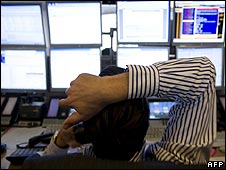 As do we all.
As do we all.
Did you hear the surprise?
If the world wide web could gasp, you would have heard it from mid-ocean. A city trader said candidly that he hoped for another recession because he could make a lot of money from one.
Various commentators then rather missed the point and started discussing whether the “man in the street” could make money from a recession, which of course they mostly can’t.
This episode brought into sharp focus a vital principle: Individuals always, always, always act in accordance with what matters to them – not what matters to us, and not what matters to that averaged expectation we call the “public interest.” Expect anything else and we will be disappointed. And what’s worse: Pretend that this isn’t so and we make our thinking and our dialogue worse than useless.
And yet…
It’s extraordinary how often we hear policy makers, commentators and others talking as if we can expect individuals to behave in the common interest – traders to always want economic prosperity. Now they might, but only in so far as they personally value the “public interest,” and they may well be under-delivering for their employer in doing so.
Please forgive me if all this is obvious to you.
(Whether international policy makers and regulators should allow large markets in financial instruments that contribute nothing to public good is another subject.)
Here are some everyday takeaways…
If people behave in ways that surprise us, it means we don’t properly understand what’s driving them. So what are we missing?
If we want people to behave in a different way, we need to change what they see as important somehow.
The most deep-seated drivers of behavior are usually unconscious ones, long since programmed in, probably around age 10. As Milton Erickson said “most of your life is unconsciously determined.”
You probably see lots of examples of people not understanding the drivers in a situation, or even not realizing that they need to. What tales have you to tell?
